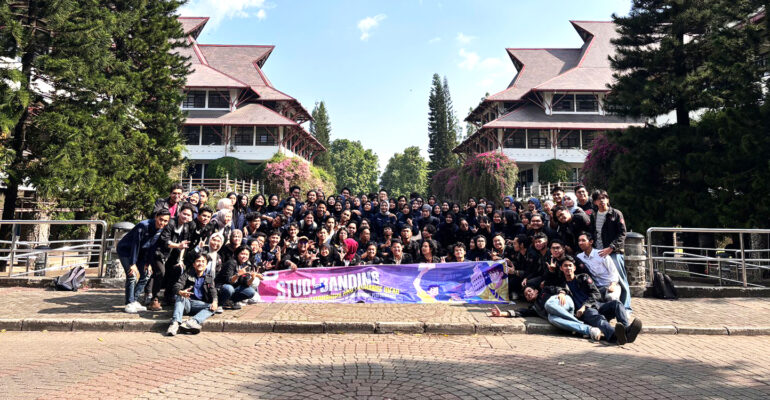Build Relationships, Himakua IPB University Comparative Study to MTM ITB

The Aquaculture Student Association (Himakua) IPB University has just carried out a comparative study activity to the Material Engineering Student Association (MTM) of the Bandung Institute of Technology (ITB). This comparative study aims to enable both associations to share and exchange insights and information about the wheels of the organization.
This activity which is a work program of the External Division of Himakua IPB University has the theme ‘Expand Relationships and Exchange Ideas on Organizational Issues to Improve Organizational Performance’. The information obtained from this comparative study is expected to be a reference to be applied in building a better organizational wheel.
Through this activity, the parties involved are trained to improve their ability to work together, build relationships, and discuss to improve organizational performance. This comparative study was attended by leaders and staff representing each division in Himakua IPB University and attended by all administrators of the MTM ITB Association.
The main activity in this comparative study series is focus group discussion (FGD). Participants are grouped based on divisions that have the same duties, principles, and functions in each organization.
“This FGD provides a space for the two associations to exchange information about management and leadership in organizations and share experiences in running work programs so that they can become ideas or motivation for each other,” said Alfiyanto Firdaus, representative of Himakua IPB University.
The FGD began with the presentation of each work program. This is a trigger for interaction in the form of discussion. Through this FGD, each participant in his group is encouraged to be responsive and can see a different and broad perspective. Both sets exchanged experiences and knowledge about how to implement a work program, the obstacles faced, and how to overcome these obstacles.
“It is hoped that through this activity participants will gain new relationships and allow collaboration in the future,” hoped Alfiyanto. (*/Rz) (IAAS/RUM)



